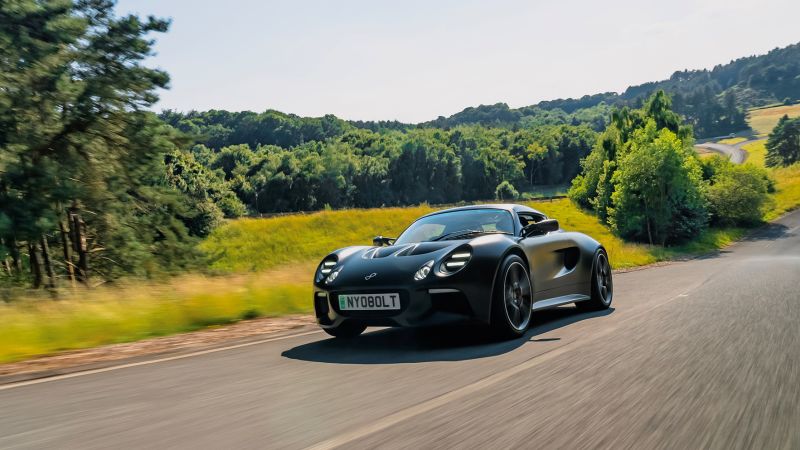Nyobolt, based in Cambridge, has developed a new 35kWh lithium-ion battery that was charged from 10% to 80% in just over four and a half minutes in its first live demonstration last week. […] Nyobolt’s technology builds on a decade of research led by University of Cambridge battery scientist Clare Grey and Cambridge-educated Shivareddy, the company said. Key to its batteries’ ability to be charged super-fast without a big impact on their longevity is a design that means they generate less heat. It also makes them safer as overheating can cause a lithium-ion battery to catch fire and explode. In addition, the materials used to make the batteries’ anodes allow for a faster transfer of electrons. Nyobolt is currently in talks to sell its batteries to eight electric car manufacturers. At 35 kWh, the battery is much smaller than the 85 kWh in a more typical American electric vehicle (EV). Yet the technology may be used in larger battery packs in the future.
Independent testing of Nyobolt’s batteries by what it called a leading global manufacturer found that they can achieve over 4,000 fast-charge cycles, equivalent to 600,000 miles (965,600 kilometers), while retaining more than 80% of capacity, Nyobolt said in its Friday statement. William Kephart, an e-mobility specialist at consultancy P3 Group and a former engineer, said EV batteries of the kind Nyobolt has developed could “theoretically” be charged as fast as the firm is promising, but the challenge was manufacturing such batteries on an industrial scale. A crucial chemical element in Nyobolt’s batteries is niobium but, as Kephart pointed out, last year only an estimated 83,000 tons (94,500 tons) was mined worldwide. Compare that with graphite, commonly used as anode material in lithium-ion batteries: an estimated 1.6 million tons (1.8 million tons) was produced in 2023. In addition, there are currently “a lot of unknowns” with the niobium battery technology, he told CNN. “The industry will work it out (but) it’s not seen by the industry as a scalable technology just yet,” he added.



On paper, they look comparable to Tesla batteries. These new batteries are about half the size of Tesla’s, and the test was performed with a charging station that delivered more than twice the power of a typical Supercharger station. Try charging two of them at the speed our current charging infrastructure will support and it’ll take about 20 minutes.
What seems to be new and improved is that these batteries can apparently accept more energy from a charging station without overheating, and the rate at which they permanently lose maximum capacity from Level 3 charging is reduced.
I wonder how heavy they are compared to the competition?
It doesn’t seem like a Tesla battery at all to me. It uses a rare material that can’t be scaled to industrial levels with the current mining yields, and it charges far faster. It’s a completely new type of battery that will probably undergo many changes before it ever hits the market, but it’s a remarkable discovery.
You mean the kw charging cable?